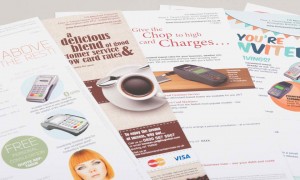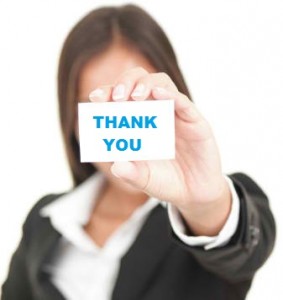
A sales letter is a direct mail that persuades readers to buy a specific product or service. But if you look at its role in one’s business, it is more than just a piece of paper. It is even beyond selling and persuading. In fact, Scot Ober and Amy Newman, authors of the book Communication in Business, consider sales as the heart of most business, and individual letters and form letters are the means to attract prospective customers. Hence, here is a 10-point comprehensive guide to writing engaging documents and letters that accelerate sales and produce results.
10. Establish a central selling theme.
This is the Unique Selling Point (USP) of your product or service. Entrepreneur.com stresses that “unless you can pinpoint what makes your business unique in a world of homogeneous competitors, you cannot target your sales efforts successfully.” This means you have to emphasize in your letter what makes your product or service different from those of the competitors. You can discover the USP by understanding what customers want (do not limit it to price), what motivates your customer’s behavior and buying decision, and the real reason why your customer wants your product or service instead of the competitor’s. The result of this market analysis should be emphasized in your sales letter.
To deliver this central selling theme or USP, you have to create an attention getter especially if it is an unsolicited letter. However, this attention getter should be related to your products and virtues, introduce the central selling feature, address the customer’s needs, sound interesting, original and brief. Some of the different types of an attention getter are:
- A solution to problem – A wallet for the busy traveler!
- A bargain – Quality traveler’s wallet (with free coin purse) for only $50!
- A proverb – A penny saved is a penny earned.
- A news announcement – The number of airplane thieves is rising…
- A quote from a famous person – “Innovation distinguishes between a leader and a follower”–Steve Jobs. The Institute of Cray Leadership is launching a new management program…
- A what-if opening – What if one day you lose everything have?
- A question – Why is everyone getting a mutual fund?
- A split sentence – You should see… that insurance is not about paying the insurance company, it is investing for your loved ones, for your future.
9. Know your audience.

The sales letter is not about the product or service you are offering. It is about showing why the product or service addresses the need or solves the problem of your target customer. In a Forbes article by Mark Evans, it is stressed that at some points, the target audience can be easily defined. For example, if you are selling an accounting software, then this is for those who like organizing the finances. So, businesses need to identify the different types of buyers to be exact with their target audience. “One of the best ways to make this happen is looking at who actually makes or influences the buying decision. From there, you look at what their needs or problems, what they’re trying to achieve, how they can be successful, and their budgets.”
Therefore, the results of fact-gathering will impact how the product should be pitched “so a prospect can be pushed down the sales funnel. By clearly identifying target audiences, it becomes easier to capture someone’s attention because their needs and goals are front and center.”
8. Keep your design neat and simple.

Here are five ways to make a sales letter engaging physically:
- Print a headline or a question bold and big on the envelope and include a mini-call to action: “Look inside to see how to get yours!”
- Craft a design that gets attention, and make sure it moves emotions with imagery “and use humor, fear, sarcasm, confidence, stability or another emotion to drive your point home.” The use of shapes and colors or a simple image can catch your customers’ eyes.
- Personalize your sales letters as much as possible. You may handwrite your sales letter envelopes to ensure the maximum number of opening customers.
- “Print your sales letter on professional envelope paper such as 70-pound white woven paper stock or premium 24-pound synergy paper stock, which feels good to hold and inspires customers to open your sales letter.”
7. Use the inductive outline for the structure.
The fundamentals of the selling procedure are:
– getting the prospect’s attention
– introducing the product / service in an interesting manner
– presenting convincing evidence
– encouraging action
Here, a more elaborate outline:
- Headlines – These are supposed to capture readers’ interest and emotions
- Greeting – This is the salutation that starts with a “Dear Target Market Name”, then a date, and your geographic location.
- Introduction – “This is section where you reiterate the details of a particular problem suffered by your target market, empathize with those who have a similar problem, outline why it’s important to seek a solution, and begin to drop hints that you’ve got the solution to this problem.”
- Your story and credentials – Elaborate your background and credentials that make you qualified to sell this product or service.
- Product introduction – This contains the benefits of the product/service.
- Bullet points – Bullets are used to organize the details and make the paper easier to navigate.
- Testimonials – These make the social proof of your credibility.
- Product details/benefits – The details of all of the specific components of your product.
- Your offer/bonuses – These should be directly related to the product and should make readers feel the enhanced value.
- Guarantee – This section fulfills the need of the customer to feel safe about your offer.
- Price Justification – Compare your pricing to other products/services that you sell, or to items your reader might use regularly. Your goal here is to make the price a non-issue for the reader by reminding her how much continuing to deal with this problem is costing her.
- Final call to action
- Closing and postcripts
6. Use vivid, objective, ethical language.
Authors Ober and Newman encourage the use of action verbs when discussing the products’ features and benefits. Take a look at their examples:
- NOT: The ski lodge isn’t in one of those crowded resort areas
- BUT: The private ski lodge sits on the snow-capped peaks of the Canadian Rocky Mountains.
- NOT: A serving of our baked potato chips doesn’t have high calories like the original chips.
- BUT: Our baked potato chips have 140 calories per serving–40% less than the original chips
They add that simply describing the product great is not enough. There should be evidence justifying your description of it. However, the authors stress that superlatives and too many strong adjectives should be avoided. The sources of the claims should be clear and acknowledged properly too:
- NOT: At $795, the Sherwood moped is the best buy on the market.
- BUT: The May issue of Independent Consumer rated the $795 Sherwood moped the year’s best buy.
- NOT: Everyone enjoys the convenience of our Bread Baker.
- BUT: Our Bread Baker comes with one feature we don’t think you’ll ever use: a 30-day, no-questions-asked return policy.
Additional copywriting tips:
Be cohesive. Ideas should flow in a logical and smooth manner to avoid distracting the audience. One sentence should spring from the previous one. Sudden change of thoughts might make readers forget what you are offering.
Be action-oriented. Do not stop at simply describing the product. Do not make it still for a long time. Make it more by using more verbs and adverbs that will help readers realize why the product is beneficial and worth purchasing for them.
5. Link the product and the recipient

The letter should stress the relationship between the product and the recipient, especially in the opening line. Here are some examples from Ober and Newman’s book:
- Technique: Thought-provoking
- Example: Most of what we had to say about business this morning was unprintable.
- Item Promoted: An early-morning television news program
- Technique: Unusual fact
- Example: If your family is typical, you will wash one ton of laundry this year.
- Item Promoted: A laundry detergent
- Technique: Direct challenge
- Example: Drop the enclosed Pointer pen on the floor, writing tip first, and then sign your name with it.
- Item Promoted: A no-blot ballpoint pen
Marketing professional Jordyn Rickard, in her article for Duct Tape Marketing’s blog, should balance the emotional connection and the intellectual connection of the sales pitch and its target audience. The emotional connection refers to conveying your passion into words. Thus, it is important to understand what makes your client thrive on a day to day basis. Meanwhile, intellectual connection is also necessary because “all business-minded individuals and consumers operate from a standpoint of validation. Everything they do has to make sense – from a financial standpoint to a moral standpoint. Take this opportunity to tell them why they need you. Why your product is the end all solution to fill the void.”
4. Present the price in small units.
According to Ober and Newman, if the price is the central selling theme, introduce it right away and emphasize it often. If it isn’t, it can be mentioned right after all the benefits have been discussed. For example, you can write “Yet surprisingly, these benefits are all yours to enjoy for the modest fee of just $35 a year.”
Marketing professional Amy Harrison, in her blog, shares three ways on how to mention price in a sales letter:
1. Comparative Pricing: You can compare your product to something which creates similar results but is more expensive.
2. Offer A Payment Plan: If applicable, you might decide to offer a payment plan to make your product not only more affordable, but to be able to talk about a price that is easier for your customer to digest.
3. Profit Possibility: If you are selling something that your customers can use to make more sales, show them how many sales they’d need to make using your product before it pays for itself.
3. End the letter with a motivating call to action.

For Ober and Newman, stating the specific request for action is encouraged when the goal is to make an actual sale, but for high-end items, the objective is to “get the reader take a small step toward purchasing, such as visiting a dealership for a test drive, calling for more information, or asking a sales representative to follow up.
You have to avoid sounding hesitant like “If you want to save money…” or “I hope you agree that this product will save you time…” More importantly, you need to make sure readers will get something from the sentence:
- NOT: Hurry! Hurry! Hurry! These sale prices won’t be in effect long.
- BUT: Call before September 30 to take advantage of our lowest prices of the year.
- NOT: If you agree that this ice cream maker will make your summers more enjoyable, you can place your order by telephone.
- BUT: To use your Jiffy Ice-Cream Maker during the upcoming July 4 weekend, simply call our toll-free number today.
Here is a sample sales letter from businessletterguru.com:
Jewelry So Exclusive, It Can Only Be For You.Dear Ms Susie:Going to a party and looking for that perfect set of earrings to set off that beautiful dress? Or are you searching for the right necklace to go with those earrings?This letter is being sent to a select group of stylish, elegant people who need a little extra from their jewelry. We understand that you need to move in society circles where it‘s just not what you wear, but what you wear it with.
Allow us to introduce our new store in Petronas Square, exclusively opened for you. We specialise in customised diamond, gold and platinum jewelry specially crafted to suit your style.We work with accomplished craftsmen that use state of the art, modern machines which enhance the clarity of our jewelry, and give them an award winning style. And, you can use the experience of our artisans to create customized jewelry that‘s just right for you.What makes our jewelry so special?
- Our in-house expert artisans create a one-of-a-kind design, so exclusive that it is uniquely yours.
- We source the best gemstones from around the world, giving you an unmatched range and selection.
- If you desire, you can select from our range of finest gemstones, and we will customize them according to your directions, at no extra cost.
Our jewelry has been featured in:
Forbes.com
Vogue
America‘s Next Top Model
We are enclosing a Jewel Card designed just for you, as part of our global customer Loyalty program for exclusive Customers.
Our diamonds await the pleasure of looking even more beautiful with you.
Respectfully,
XYZ
P.S
We invite you to get a diamond necklace, our compliments. All you need to do is to visit our store within two weeks.
Please find our location details in the enclosed card.
2. Make a follow up.
Surprise! Did you think this is all about selling? Well, following up on the customer who just received your sales letter remains an important part of the selling process.
Here some tips on how to write a follow up letter:
- Choose sending an addressed, stamped and delivered post note instead of an email.
- Send your letter promptly after the meeting to re-establish your presence and your commitment to offer the opportunity to the recipient.
- Keep it brief, and reinforce the connection you made with the recipient.
Here’s his example:
Dear {Prospect’s Name},
I just wanted to drop you a short note to thank you for taking time out and sharing a few moments with me yesterday.
I found the information we exchanged very intriguing and I come away from our meeting feeling that there could be a nice fit between us.
I’m looking forward to {insert your follow up action here} and to the prospect of a mutually beneficial relationship with you and {prospects firm} and to opportunities the future may bring. I hope also that you’ll feel free to call me with any questions, challenges or problems I may be able to help you or your associates work out.
Sincerely,
{your hand written signature}
Your Name
1. Send A Thank-You Note

So your sales letter and follow-up letter sealed a deal.
Is that it?
Send a thank-you note. More than a possible business in the future, a thank-you note will keep your recently successful business with the recipient sincere. If you also know throughout the process that you did not just gain financial reward but emotional growth, competence, and skills, the other party deserves to know that he played a big part to your career.
Here’s a great pointer for writing a professional thank-you letter, and it is called G-R-E-A-T.
Grateful For Their Time
Reference: What Did You Learn
Explanation: Why You Sent A Book (or gift)–if you gave one
Action: Next Steps
- If you talked about working together or a future call briefly talk about what the next steps will be.
- If they gave you advice, follow up with them and let them know your results. People love to hear when their advice works. Actually taking action and following their advice will set you apart from all the other people they talk to.
- They are ten times more likely to give you additional advice later on if you they know you really use their advice.
Thanks: Always End With Saying Thank You

